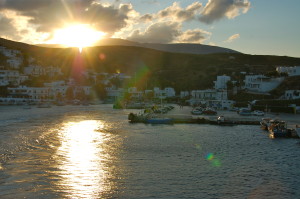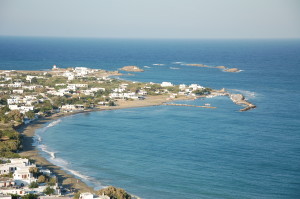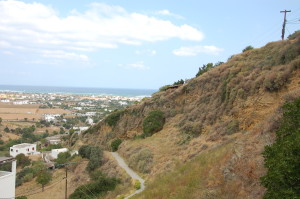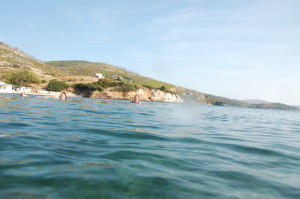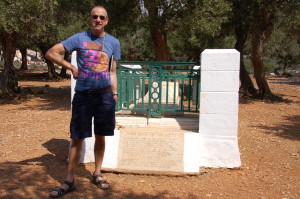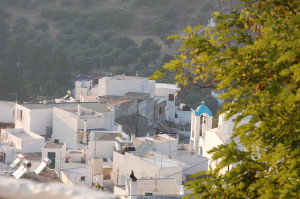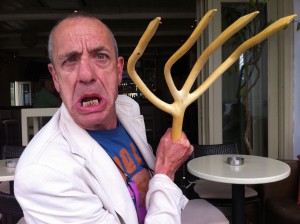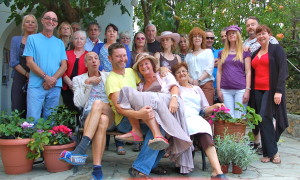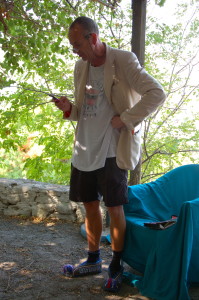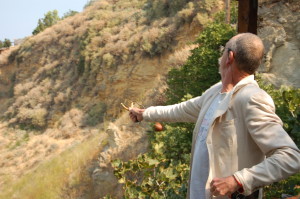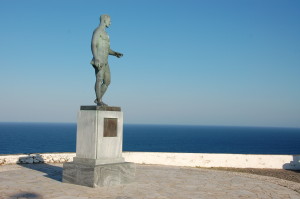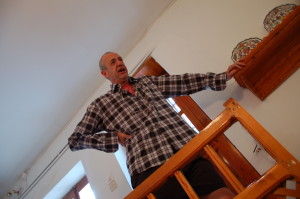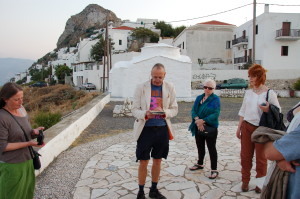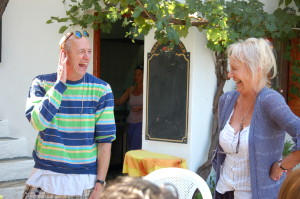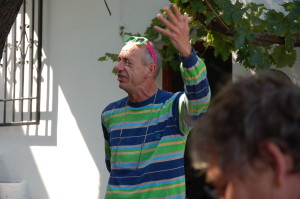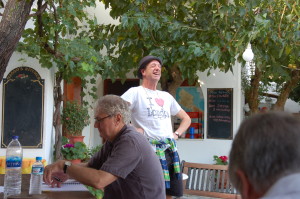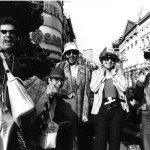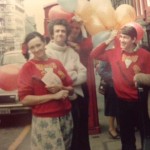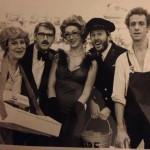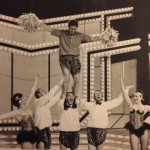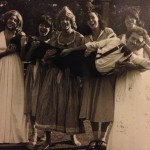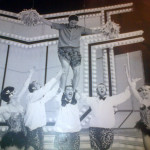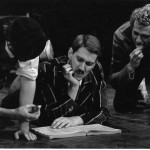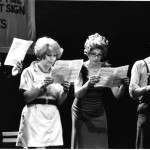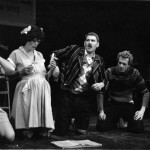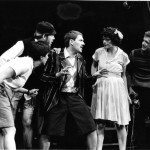Shall we meet then, you and I… In Skyros
Shall we meet then, you and I, on a Greek island in September? Any day between Saturday 4th and 11th? Admittedly you will have to pay for this – but think what fun we can have…
This will be the 4th time I have taught a course this year called ‘Mindlessness’ on the island of Skyros and here are the reasons why you should come and be my student this year
The island is beautiful (see pics) and so in September is the weather. The Skyros Centre lies in the tiny capital of the island – a jumble of white dwellings, groovy bars and restaurants.
My ‘lessons’ take place in the mornings on a stone terrace overlooking the blue Aegean Sea. Laughter is inevitable. Peace is available in the afternoons when you can make the short walk to sit on the sandy beach, swam in the sea, eat fresh seafood or write your novel.
This is the blurb about my course:
Mindlessness
Mindlessness is a course for people who are interested in laughter, both doing it and making it happen. If you want to be a comic novelist, a playwright, a writer of screen plays, sketches, poetry and gags or, if you are really deranged and want to be a stand up comedian, then there will be something here for you. If, on the other hand you have no such ambition but just want to sit around laughing in the Aegean sun then you too are welcome.
There will be discussions about what is funny and exercises in how to make funny happen. You will be invited to write stories, poems and one-liners, and to recount anecdotes about your shameful past; you will learn about the rule of 3, the importance of the call back and how to cope with deranged hecklers. Most importantly, at the end everyone gets a certificate.
Some of my methods are old school e.g I will cane anyone who is more than ten minutes late and I must be addressed at all times as sir.
You need not be desperate to become a writer or comedian to come along – my students have included retired teachers, an optician, the newly-divorced wife of an oil executive, a Norwegian nurse, an MI5 operative and a bicycle repair-man
Some of my methods are ‘old school’ eg I will thrash anyone who is more than ten minutes late and I must be addressed at all times as ‘sir’.
If you have failed to clock that that last sentence was a joke then we have some work to do. Good.
Xxxxxxxxx
Theseus died on Skyros and Achilles left from there to take part in the Trojan Wars. And, for someone like myself, educated at a grammar school in the sixties, when we all had to know the poets of the First World War, Skyros has a special resident – Rupert Brooke is buried there. His most famous lines take on a new poignancy when you stand at his grave in an olive grove that lies on the barren, goat-attracting Southern tip of the island:
‘If I should die, think only this of me.
That there’s some corner of a foreign field
That is forever England’
So, hope to see you there and if you are till uncertain this is the clincher
EVERYONE GETS A CERTIFICATE!
A Holiday with Arthur Smith
Sun 4th to Sun 11th – Mindlessness: Comedy Writing – A course for people who are interested in laughter – Skyros Centre, Greece – Course & Booking info
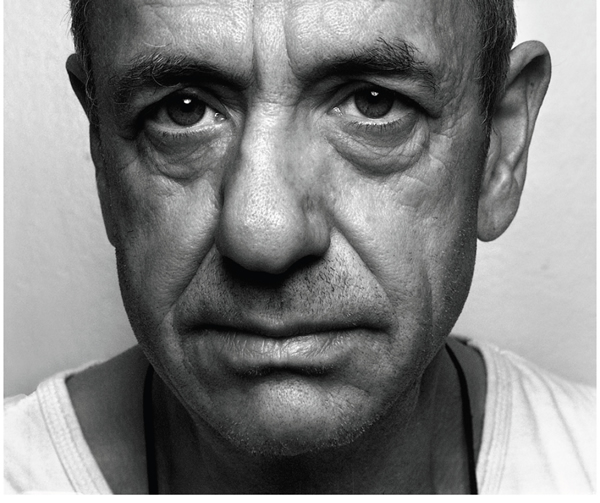
My Dad’s End To The War
“We saw the Germans attempting to blow up the bridge over the river which the GIs would have to cross. Later a tank approached over the bridge and the Germans held up their arms in surrender. White flags appeared at all the windows of the surrounding buildings. Freedom was nigh!
Soon American infantry entered Colditz. They were kissed by the French and had hands shaken by the British. They informed us that earlier they had instructions to raze Colditz to the ground and it was only because someone had the foresight to put Allied flags out that saved it.
It was a day to remember. Freedom after 2 ½ years. For some it was since Dunkirk. The Yanks gave us food and real coffee.
Arrangements had to be made to move us and it was made difficult because the war was not yet over. In the meantime I, amongst others, went down to the village. I met and embraced a 16-year-old polish girl. The first female I’d seen for many a long day. She had been forced to work as a maid for a German general since the age of 14. She was extremely pretty and I spent an ecstatic few hours with her.
While waiting for the transport to move us I ambled around the camp and was shown the glider which was being made by two RAF officers. It was situated in a camouflaged room in the attic under the roof. It was made out of wooden bed posts and sheets. The idea was to knock a hole in the roof, put it together and glide off far enough to get over the river. The Americans were most impressed. So was I.
Our convoy took us through a forest and suddenly we stopped as apparently there was fear of an ambush. A patrol was sent forward to search things out but fortunately it was a false alarm.
We passed by Leipzig, which was being sheltered by our forces. The enemy were still holding out. We came under a bit of shelling ourselves and were glad to see the back of that episode.
Eventually we reached an aerodrome, which I think was somewhere in France. We were to fly home in a Dakota. Before I boarded the plane I was stopped by an American soldier who said that I wasn’t allowed to take the German pistol that I had pinched from Colditz as a memento. He said he would give me a bottle of Scotch for it. I was only too pleased to make the swap.
We sat on the floor of the Dakota. We took off and it was hard to believe that we were on the way home. The plane rattled and vibrated. It was the first time that I had flown and I prayed that it would make it because it sounded to me as if the engine was about clapped out.
We crossed the English Channel and there before our very eyes we saw the white cliffs of Dover. Men cried and all of us were speechless with emotion. It was some time before anyone spoke. We embraced each other.
We landed somewhere in Buckinghamshire. We were greeted by bands and cheering crowds. We were deloused and medically examined and then given a new uniform and regimental emblems to be sewn on. We were able to send a telegram to our loved ones saying that we would be home in about a week. I suppose they wanted to spruce us up a bit.
Each of us was handed over to the WVS. I was taken in charge by a lovely young lady. She took me to her home which was a farm near Great Missenden. She sewed all my emblems on and generally knocked me into shape.
I had an embarrassing moment as I wandered round the farmyard with my hosts. I saw two chickens which I thought were knocking the living daylights out of each other. I pointed this out to my chaperone, who made no comment but gave a sort of sardonic smile. I slowly began to realise that the chicken which appeared to be less belligerent seemed to be enjoying the battle. A tinge of red coloured my face.
The week on the farm was heavenly and only tainted a little by the thought of going home.
The big day arrived. I said goodbye to my farmer friends. They had done me proud. They said I could return any time. In fact, I was to see the young lady many times again.
I packed my few belongings and made my way to the station. I think I arrived at Marylebone. I caught a tube to the Oval and then a 59 bus to New Park Road. It was a sheer delight to be travelling under my own steam without being surrounded by armed guards.
I walked down New Park Road and entered the gates of Byng House. There were flags flying from all the windows. I was home after 3 ½ years.”
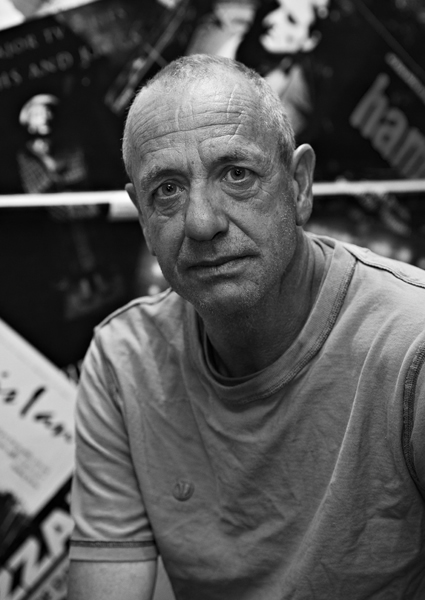
2 little poems, the second unfinished
And when I watch the news
And when I watch the news I look
not at the urgent reporter
gabbling into the unfolding event
trying so hard to see meaning in the mayhem
but behind and above him
at the chaotic mosaic of heads
the angry men confirming the story
in this hot dry place
and I pick one small blob
from all the rest
a faceless distant orb among
all the separate faraway drops
and I think “Who is he?
Where does he live?
What did he have for his breakfast?’
Him and all the billions of others
Laughter
People pay money to go into a room
Where someone makes them do it
Every laugh
A moment of high solace
A shout out to the chimpanzees
A signature you cannot predict
The burly dude with his high-pitched whinny
The machine gun holler of the tiny girl
Arthur Smith. Has Gigs
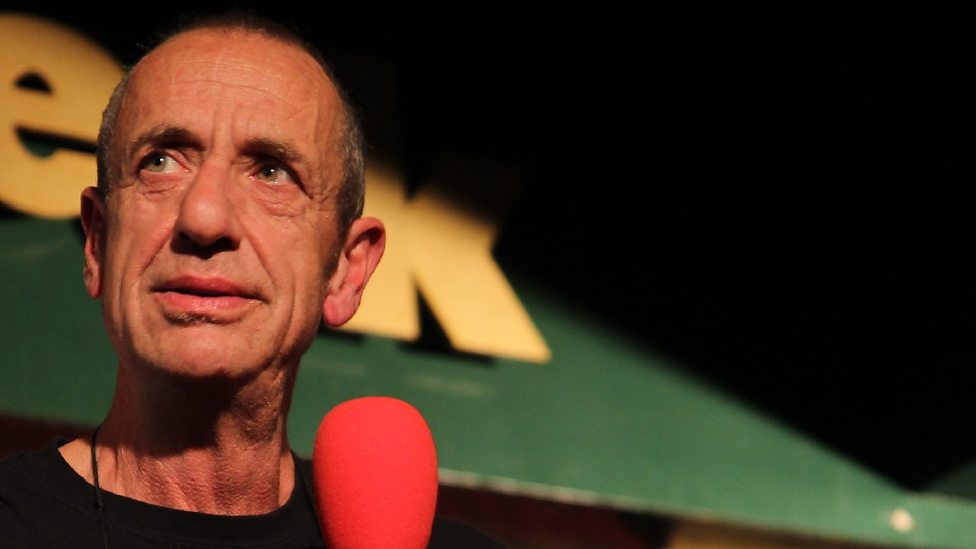
Malcolm Hardee 10 years gone.
Malcolm Hardee 10 years gone. This is what I wrote about him in my memoir
anything you do not understand please regard as significant (Arnold Brown)
…..But the most striking example of the overlapping of venue and person was to be found down the rough end of Greenwich, the natural habitat of one of the most remarkable people I ever met.
The ironically-named Tunnel Palladium was situated in the Mitre pub at the southern entrance to the Blackwall Tunnel, isolated in wasteland and flanked by a gas-holder. The Sunday shows were run and compèred by small-time legend, Malcolm Hardee, whom I had come across in Edinburgh when he was living in a tent and performing with The Greatest Show on Legs – an amateurish, knockabout outfit whose don’t-give-a-fuck attitude and surreal visuals were a refreshing antidote to some of the more austere and earnest acts on display at the Festival. That was the year when, in a dispute with the American comic Eric Bogossian, he had retaliated by driving naked through Bogossian’s show on a fork-lift truck trailing his audience behind him.
Malcolm, who resembled a debauched Eric Morecambe, was a one-man affront to sobriety, cleanliness and good order. He had been a pupil at Colfe’s Grammar School, a nearby rival of Roan, my old school in Greenwich, but had been expelled for blowing up the school organ. His true alma mater was Exeter prison where he spent several years at her Majesty’s pleasure, though it is hard to imagine anything Malcolm did that might have given the queen pleasure. His career as a car-thief and drug-dealer having stalled, he decided to go into showbiz with his friend, Martin Soan, who had created a pornographic Punch and Judy show to perform around South West England. This eventually became ‘the Legs,’ who scandalised the nation (and several others) with their nude cha cha cha balloon dance.
Phil and I played the opening night at the Tunnel, which, under Malcolm’s influence, became the arena where London’s top hecklers gathered every Sunday to slaughter open spots and established acts alike. Some punters even met up beforehand in a kind of heckling seminar and one night, when I was performing solo, a voice in the dark interrupted me with a Latin phrase that turned out to mean ‘show us your tits.’* The word ‘notorious’ soon attached itself to the Tunnel which is now remembered as Alternative Comedy’s equivalent to the previous generation’s Glasgow Empire – a place for confrontation, raucousness, multiple comedy pile-ups and deaths. It was not uncommon for the acts to be booed off with such efficiency that the whole show was over in twenty minutes, an occasion that was greeted by the regulars as a great success. Malcolm, instinctively anti-authoritarian from his thick black glasses, down his naked hairy body, to his piss-stained odd socks, liked to encourage the mayhem by the frequent exhibition of his titanic testicles, which he advertised as ‘the second biggest in the country – after Jenny Agutter’s father.’ (Apparently, they had once compared notes). If the mood took him he would urinate over the front row and, such was his charisma, the victims cheered rather than remonstrated.
* papillas tui nobis ostende.
The Tunnel’s uproarious air of unpredictability was encouraged by what seemed like a deranged booking policy. Possessing a natural affinity with the under-rehearsed shambles, Malcolm showcased acts others feared to; the sensational Chris Lynham who ended his set by removing his clothes, lighting a firework he wedged up his arse* and singing ‘There’s no business like show business;’ a tap dancing Swede (badly let down by the carpetted stage); Madame Poulet and her Singing Chickens (don’t ask); the Ice Man, whose whole act consisted of increasingly frantic attempts to melt a large block of ice; Sylvie Bottle-Knocker a busty lady able to open a bottle of beer using only her breasts and, once only, a transvestite dressed as Myra Hindley, who told the story of Little Red Riding Hood. Malcolm’s compèring style was fair but ruthless. He would warn the crowd, ‘The next act is liable to be shit,’ but then praise them if they entertained. If a performer has bombed badly there is always a laugh available to the MC afterwards and Malcolm would take it with glee. Remembering my own first try-out, I preferred not to compound the comic’s misery when I compered, but I hinted at their failure with a line borrowed from the novelist Anthony Powell; ‘Well, I think the best we can say about him is that he is a rich testimony to the infinite diversity of the human personality.’
Every week at the Tunnel Palladium, and then at its successor Up The Creek, the audience chanted joyfully along with Malcolm’s handful of old one-liners and clapped indulgently when he set off on his inevitable rambling harmonica solos. He had already created the phrases which defined him – where other people said ‘Hello’ or ‘Goodbye’, Malcolm dispensed a loud ‘Oy Oy!’ His philosophy of life was encapsulated in his other 2 catchphrases – ‘Knob out!’ and ‘Fuck it!’ both of which he enacted with little encouragement. His reckless appetite for adventure, his dislike of being on his own and his genetically programmed rejection of the sensible course of action meant that every comic had a Malcolm story. If Tony Allen was the theory of anarchic comedy, then Malcolm was its cock-eyed embodiment.
** Malcolm tried this trick himself and ended in hospital with a singed anus.
UPCOMING GIG
10 Years On: The Malcolm Show – Feb 2nd 2015 – Up the Creek
Chapter 28 Two deaths, a proposal and a birthday.
If, in some future time, the River Thames is drained, there will be a rich and fascinating haul of items revealed on the riverbed. Among the Roman coins, medieval weapons, unexploded bombs, bones and punctured yoghurt pots, there will be a large pair of thick black-rimmed glasses. Whoever finds them will not know that they once clung to the ears of Malcolm Hardee, who toppled into the river early one pissed, frozen morning and was pulled out 36 hours later by police frogmen, still clutching his final bottle of beer. It seems that our bet as to which of us would die first had been won. No doubt the cheque is in the post.
When the news broke that Malcolm had drowned, comedians and citizens of Greenwich immediately began to congregate at the last venue he ran, the aptly named Wibbley Wobbley, the pub/ boat moored on Surrey quays in which I had invested before, astonishingly, Malcolm paid me back (no profit obviously). People stood around in shocked clumps although, given his reckless nature and his known penchant for messing about on the river, no-one could really be surprised at what had happened. Most of those present had spent an afternoon or two drinking heavily with him on his boat, spluttering and chuntering uncertainly downriver to the Thames barrier at Woolwich (useless, according to Malcolm). I had put my time in on board this vessel, which seemed to me hardly more than a motorized bath tub although, following the benefit he had conned me into, it had been upgraded to motorized kitchen, Malcolm’s longest affair was with the River and his extinction in its murky green arms was tragic but entirely appropriate. His father had been a Thames lighterman who, Malcolm had boasted proudly, towed the Cutty Sark into dry dock. Malcolm lived on a boat across from the Wibbly Wobbly and had fallen in while rowing between the two – standing up as he rowed because that’s what men of the river did. It was not the first time he had tumbled into the water, though it was, of course and alas, the last.
Mister Hardee, as he liked to call himself, had been at the Comedy Store at the beginning and, in the Tunnel Palladium, he founded, and personified, a club that was the most distinctive of all the early London comedy venues. He booked, managed, and slept with acts that others wouldn’t, was a stalwart of the Glastonbury and Edinburgh festivals as well as a consistent disappointment to the Police, the Inland Revenue and the big-money agencies who had moved into comedy. He represented the anarchic, ramshackle early days of the circuit when there was little cash but a wealth of vitality, creativity and laughable experimentation. Erica Jong remarked recently that the backlash against feminism has lasted far longer than feminism itself and I feel the same about alternative comedy, whatever it was. The scene now is slicker, more professional and less politicized – you can see material which would have been deemed reprehensible in the mid-eighties but is accepted because it comes in a sharp suit and hides behind a half-baked notion of irony. * This has ushered in a revival of misogyny masquerading as exprimentation among male comedians that disappoints we old lefties. Och, look at me on my prehistoric high horse
It was twenty-five years since the birth of ‘alternative cabaret’ and while the name was long gone, the circuit it gave birth to thrives all over Britain and in numerous foreign outposts. You can now study ‘the theory and practice of stand-up comedy’ as part of your drama degree at the University of Kent.** It is, arguably, London, not New York or LA, that is the funniest city in the English-speaking world although the big money is over there. Comedians in Britain have infiltrated all aspects of the media – as actors, TV presenters, radio stars, novelists, playwrights, filmmakers and internet-ticklers, while some – like Dave Gorman and double-act Noble and Silver – are closer to conceptual art than comedy
Malcolm, who had lived his life as an undeclared work of conceptual art, provided, as his final scenario, the conditions for the perfect funeral and Alex, his younger brother, paid him the compliment of creating it. Alex works in the popular music business now but I had come across him when he put on some comedy gigs in Edinburgh one year. At the one I played, in a boozer for the depraved and degraded, a man poured a pint of his piss over me during my set – which was a kind of inversion of Alex’s brother’s trick. The ‘heckler’ explained to me that he had done it because he liked my routine, which made me wonder how he would have reacted if he had hated it.
In keeping with the grandeur of the church to which it was heading, Malcolm’s funeral cortège was formed of a sumptuous line of shiny old black cars and, in keeping with the body it was transporting, the flowers bedecking the hearse spelt out, ‘Oy Oy,’ Knob out’ and ‘Fuck it.’ This novelty vehicle led the procession slowly past the Wibbly Wobbly, the Cutty Sark (soon to go up in flames itself), past Up The Creek – where the pavement was lined with respectful locals – and round the corner to Saint Alfeges Church, where hundreds more mourners were waiting. He was never famous himself, but Malcolm was known to many who are. Among the congregation joining his family in Saint Alfeges were enough well-known comics that if a bomb had exploded, all TV panel games and talking heads/clip shows would have been postponed for months to come. And there were young comics, ex-comics, failed comics, soon-to-be comics, strippers, musicians, techies, betting shop boys, a range of Malcolm;s lovers and the assembled demi-monde of all Greenwich, overflowing from the church into the courtyard outside. People who had not met for years shook hands and embraced. The atmosphere in the stern dome was charged with emotion and anticipation of whatever was about to happen – maybe, in his greatest stunt yet, the lid would fall from the coffin and Malcolm would sit up, adjust his glasses and say, ‘Oy oy!. What’s all the fuss about?’
* Here is a line of Jimmy Carr’s: ‘The male gypsy moth can spell the female gypsy moth at up to seven miles. And that’s still true if you remove the word ‘moth.’’
** A course taught by Oliver Double – and rightly so.
Ever alert to the increased comic possibilities offered by a formal setting, Malcolm had married the redoubtable and fabulous Jane at Saint Alfeges on April Fools day ten years earlier. He had asked me to read something from the Bible.
‘All right, which bit? ‘
‘Oh, you choose – anything as long as it’s from the Bible.’
I had selected a fire-and-brimstone passage from the Old Testament raging against the misuse of one’s rod, an invocation I suspect he ignored. That ceremony was recalled now as his funeral got underway and Martin Soan, his old partner in the Greatest Show on Legs, recited Malcolm’s traditional opening line, tailored to whichever venue he was playing, and blatantly stolen from Ian MacPherson; “They say you only play Saint Alfeges twice in your life once on the way up and once on the way down. Great to be back.”
The coffin, an L-plate fixed to its front, was carried in by six, soberly attired pall-bearers, to the accompaniment of the cheesy balloon-dance cha cha cha, and placed gently on a platform in front of the altar. The vicar leading the service introduced the sweetly naïve hymn ‘All things bright and beautiful,’‘because Malcolm was bright and he was beautiful.’ The organ struck up and the singing was loud for all the verses. As co-host, the secular compère, I stepped up alongside the coffin:
“The Lord God, if you do exist, you did indeed make the little flowers that open, you did make the little birds that sing…and then you had a couple of pints and you made Malcolm Hardee.’
‘Everything about Malcolm, apart from his stand-up material, was original. He was the one-offs one-off.’
‘But before we start, let’s release a little tension and give a big round of applause to one of the most remarkable people any of us….” but I didn’t finish the sentence because everyone had already started clapping.
Other than in the artificial glare of industry dos, comedians very rarely come together in large numbers but here, in this sublimely incongruous setting, audibly united in our good-bye to one man, there was a feeling of communality, a shared comprehension of the deprivations and glories of the stand-up life and this most colourful of its exponents. All those who could, rose to their feet, cheering and whistling in a heart-stopping ovation. The first among us to die – and what a death. He was a stand-up comic. I am a stand-up comic. And so are you, my friend. Who would not wish to be such a creature?
Eventually the applause subsided and the funniest, and the most moving gig I ever attended or ever played, continued with brilliant speeches, poignant musical interludes and outrageous spontaneities until, finally, the coffin was borne from the church by the pall-bearers, trying hard not to laugh as Elvis Presley’s Return to Sender played Malcolm Hardee out of the church and on to the crematorium.
Beth, who supported me most beautifully that day, observed that I had been born to play this funeral. Malcolm and I were of a similar age and had been around comedy for the same amount of time. Like him, I was a South London grammar school boy who had spent too many nights marauding around the pubs and streets of Greenwich; I had performed at most of the sundry venues Malcolm opened, written a short story ( ‘The Man With two Penis’’) in the book he had compiled called Sit-Down Comedy, and he and I had frequently participated in each other’s Fringe escapades – it was only when his autobiography was published that I had learned he had, as a matter of course, rung and complained to the police at the start of all my tours of the Royal Mile. Malcolm was the supreme Mister Greenwich but his funeral cortège had passed several milestones in my own early life. Surrey Quays is where the insurmountable fences (even by Raymond) of Surrey docks once stood – I had grown up next to them fighting in the bombsite wars. A few years later, as a gauche, carbuncular schoolboy, I sat in Saint Alfeges church looking in awe at the girls across the aisle and, as a young man, I had made my first, failed bid for stardom at the Cutty Sark boat with Gary, Dennis and hot Miriâme from France. It was all a long time ago. Or a blink of the eye. So passes life, alas how swift. It’s a game-and-a half where you are Ron, it’s a game-and-a half where we all are Brian.
That it was the end of an era in comedy, or at least in the lives of a bunch of comics, seemed to be confirmed by another death a year after Malcolm’s epic departure. Brilliant, radical, erudite, principled and less starry than it is possible to imagine a gifted, famous person could be, Linda Smith’s premature death at 48 was more shocking than Malcolm’s – which had been on the cards ever since he had dangled from a railway bridge, aged nine. Where Malcolm was an example of what Tom Elsasser had called me at UEA, an ‘eventist’, Linda was a sculptress in hilarious words and a radical thinker who had started her career playing Miners Welfare Clubs during the strike of 84/85. I had met her many times on the comedy circuit, laughed with her on sundry radio shows, introduced her in the Hackney Empire New Act of the Year competition and on TV in First Exposure. As a political female stand-up there was no-one to compare with her – and there still isn’t.

Eighty-six
Moments after leaving home, I return to put my shorts on. Goodness, it is warm – the hottest Halloween, no doubt, since records began. I usually walk there but today I cab it, hoping I might see Nick who has been with Hazel this morning. (Richard is going tomorrow). I see from the visitor’s book Nick left half an hour ago.
“Where are you taking Hazel today?” asks Linda on reception, “Shanghai?”
“No, we went there last week. – San Francisco today, I think.”
The door through to the dementia wing is the physical embodiment of the ‘deprivation of liberty’ document we have to sign soon. Attached to it is a note telling visitors not to let residents out – apparently two old ladies recently managed to bluff their way through and were apprehended leaving the home.
The leader of this escape attempt I know to have been Hazel. Sometimes, we are told, she gets distressed at what amounts to her imprisonment. Occasionally when I arrive she is lurking here with her friend and fellow escaper, the largely silent Joy.
But today she is sitting quietly in the main lounge. Her face lights up to see me “Dear Boy!”
“Happy birthday mother!”
“Is it my birthday? How old am I? I’m not 3 figures am I?”
Although she lacks her front teeth, she looks far better than those last years she spent living alone in Tonbridge, when she had given up washing and changing her clothes. Today, on her 86th birthday, she is clean, fresh and smart and her neat hair is as blond as it is grey.
She opens birthday cards from Brenda and Sasha, relishing Sasha’s word ‘spooktastic.’ Then it is time for her lunch. I sit with her and 2 other ladies, one of whom blurts angrily, “Where is the salt? You can’t eat this without salt!” Hazel polishes off her meal in style and I announce we are going for a walk. This is, as it has been ever since she was evacuated to the countryside 75 years ago, a favourite thing of hers.
We skirt along one side of the golf course and around the fine lawns which surround the handsome Victorian building that is Springfield hospital. We sit on one of our regular benches, admire the trees and watch the planes go over, two pastimes we never tire of. The sky is cloudless and Hazel is excited by the lengthening white line one plane carves upon the blue. “And look at the little pigeon. “ she says, “He’s having a good day.”
“How is Beth?” She asks, surprising me again with what she sometimes remembers. As she does when she picks out her grandson James from one of the old photos I have brought. We are basking in the sun now. “Look at the trees, aren’t they beautiful? The leaves coming down now…”
Walking back we stop off at the golf club for a drink. “Coffee or a white wine mother?” She hesitates, “A white wine please dear boy.” But this is fine, she hardly drinks alcohol these days. She praises the green-ness all around us and we laugh at some small boys struggling with big golf bags.
“So how was San Francisco?” asks Linda back at reception.
“Lovely, says Hazel, “but I’m pleased to be back.”
Now comes the part I find hardest. Sometimes she becomes unhappy when I leave and I have to console myself that she will have soon forgotten this distress. In the lounge a table is set with pink glasses and the carers welcome Hazel back for her birthday party. I slip away as she is toasted.
Walking up the road from the care home my eyes are a little damp but I pass a couple of drunken zombies who make me laugh. It is a beautiful late afternoon in Autumn and, before I head home. I decide to take a turn around the common.
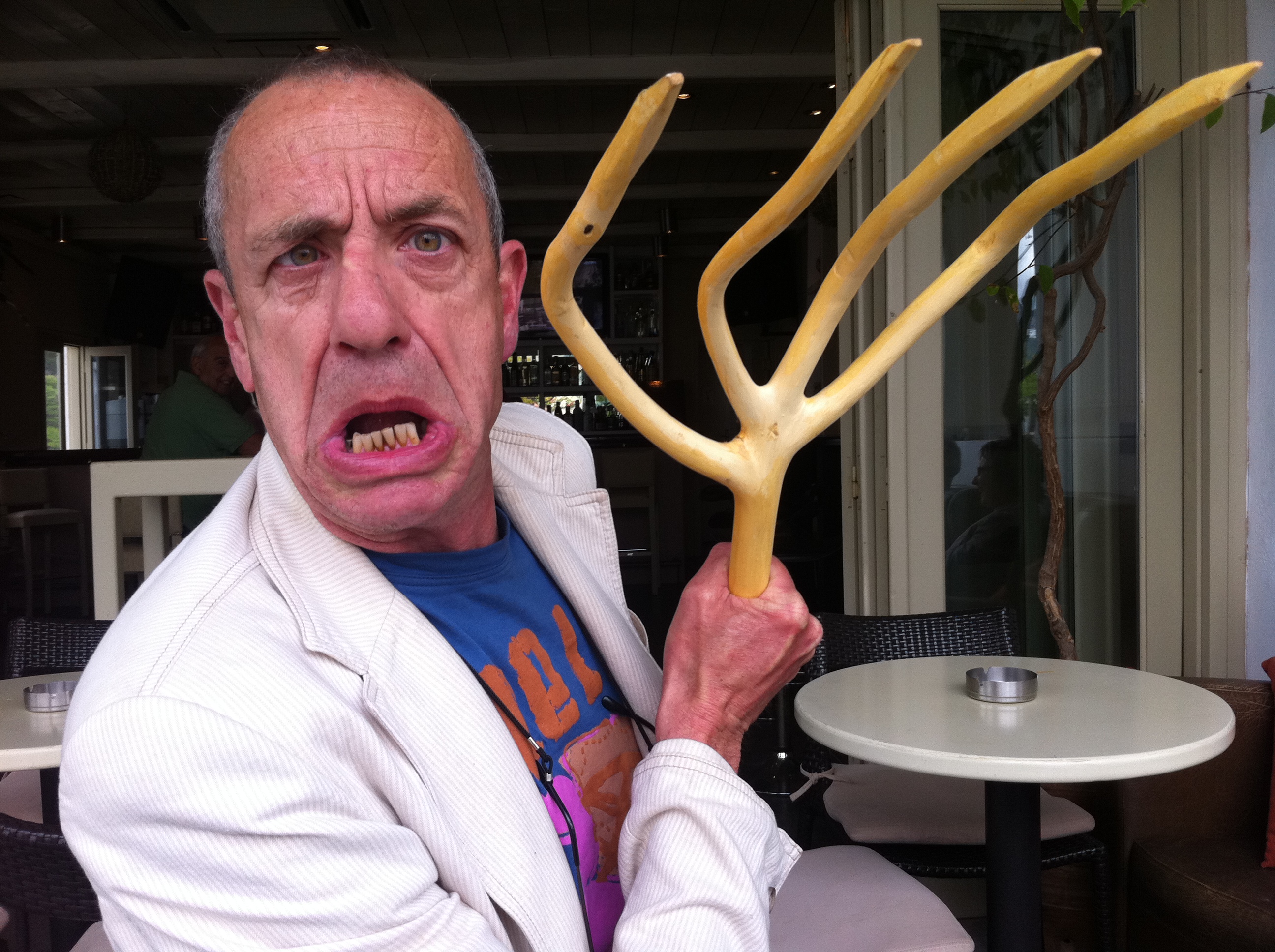
Rape Jokes
Originally published in The Stage
Nov 2014
There has been much discussion in comedy circles recently about the rise of sexist material peddled by young male stand ups and especially the rape ‘jokes’ that have become increasingly common. Enter comic Dapper Laughs with his profoundly misogynistic ITV 2 show ‘On the Pull.’ He was caught on camera at a live gig defending it thus: ‘If it was a guide to rape, I would have done one five-minute episode, come on and go, “Oi oi, I’m Dapper Laughs, go down the shops, get some rope, bit of duct tape, rape the bitch, well done, see you later”.’
To add further glory to his repertoire Mr Laughs was then heard telling a female audience member she was ‘gagging for a rape’ before adding ‘do you want to come backstage after, yeah? Bring two of your mates, you’ll need them’.
I find this all rather depressing and I blame the gateway drug that is comedians like Jimmy Carr, whose material includes the lines – “What do nine out of 10 people enjoy? Gang rape…..” Or “What’s the difference between football and rape? Women don’t like football” And so on and so on.
Whilst I agree that comedy should sometimes be transgressive and I am not in favour of censorship, I find these routines pathetic and lamentable, making brutality a joke, at a time when British police fail to record one in four sex crimes.
Sexual assault is the only kind of violent assault for which the victim — not the assailant — feels guilty and is routinely blamed, overtly or by implication. These Carr/Dapper style jokes risk normalizing the idea of violence against women in the minds of some of their audience.
Elsewhere on the net the comedian Andrew Lawrence wrote an apologia for UKIP and went on to criticise “panel shows like Mock The Week where aging, balding, fat men, ethnic comedians and women-posing-as-comedians, sit congratulating themselves on how enlightened they are about the fact that UKIP are ridiculous and pathetic.” Following complaints from other comedians he observed that “Increasingly the print media in this country is being dominated by militant pseudo-feminists.” (maybe he has a point here –Rupert Murdoch, Richard Desmond, the Barclay brothers and Paul Dacre are feminazi bra-burners to a man).
I noticed that one of the more than 1500 people (nearly all men) who ‘liked’ Lawrence’s original blog was a comic I have known for 30 years – one of the original batch of ‘alternative’ comedians who reacted against the sexist old school comics. I emailed to him to ask if he meant to ‘like’ Lawrence’s piece and his reply was “Yes. I just LOVE being naughty!” And he then sent me an old Benny Hill routine…
So I am cast as the grim-faced naysayer who frowns at the boys having their innocent fun. Well then so be it. Once again I feel like making an apology to all the women of the world on behalf of my dismal gender. And a merry Christmas to you too vicar.
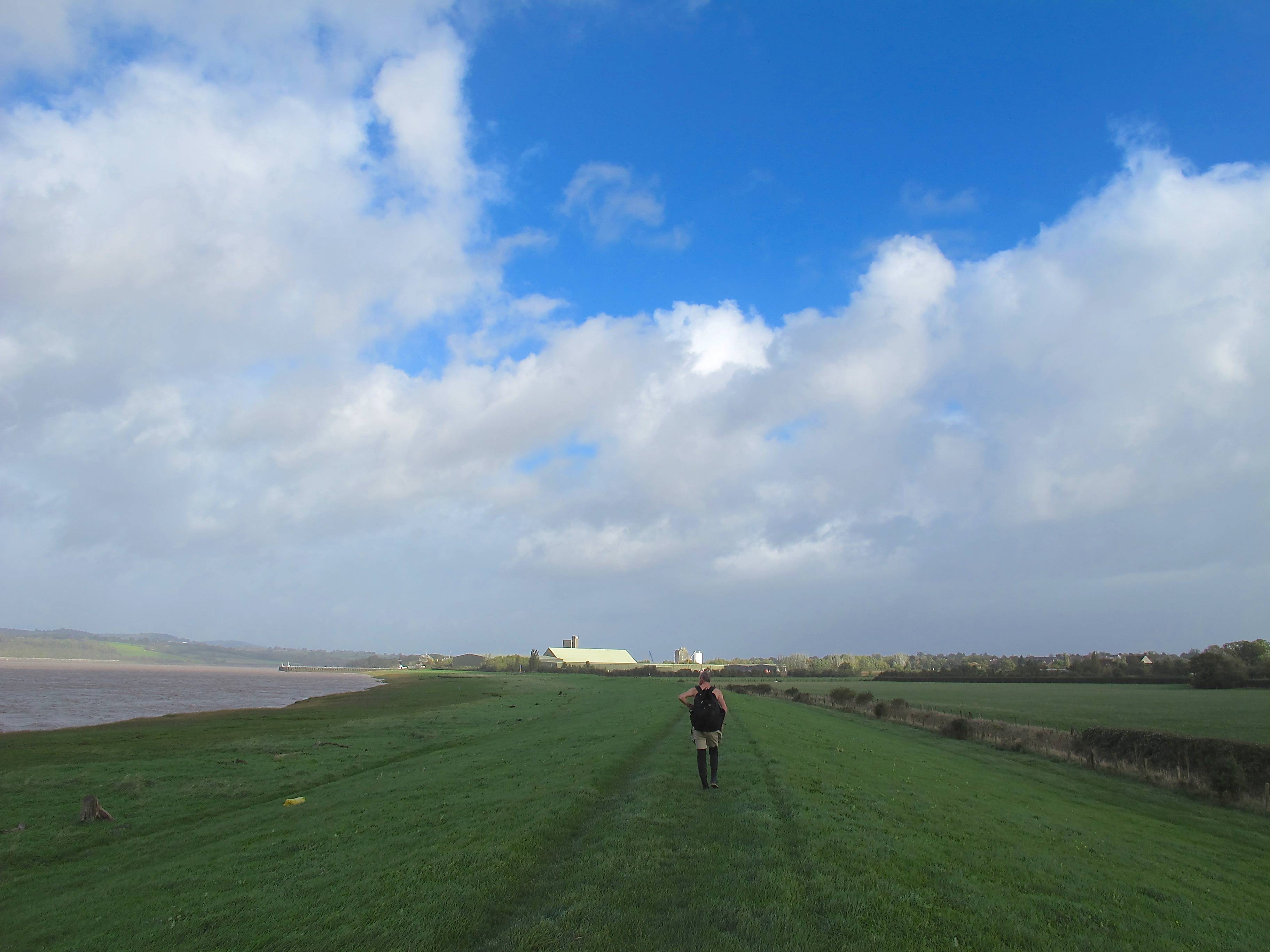
Poem: Saturday in Athens
Saturday in Athens
You can just discern her, a faded imprint
in the matinal shimmer
a little shabbier than one might hope
She sits and thinks and sits and thinks
about her glorious heyday years
(which all the world is still applauding)
and wonders what will become of her…
But then as dusk unfolds
She starts to sparkle and preen and glow
and all the lights way down below
salute their boss
in her moonlit gloss.
As midnight comes
she starts to preen
and feel the joy of what she’s been.
From her columns centuries spill
shining shining on her ancient hill.
“Hey all yous,” she suddenly cries,
“all you lot beneath the skies,
Who on earth do you think you are?
Round Athens way there’s just one star.
Everybody suck on this
I am the fucking Acropolis.”
13th September 2014 – Athens
Arthur Smith Sings Leonard Cohen (Vol 2)
September
Saturday 27th – Wyvern Theatre, Swindon – Tickets & Info
November
Fri 3rd – Churchill Theatre, Bromley – Tickets & Info
Mon 6th – Harrogate Theatre, Harrogate –Tickets & Info
Wed 15th – Theatre Royal, Brighton – Tickets & Info
Thursday 23rd – Galway Comedy Festival – Tickets & Info
Wed 29th – Concert Hall, Reading – Tickets & Info
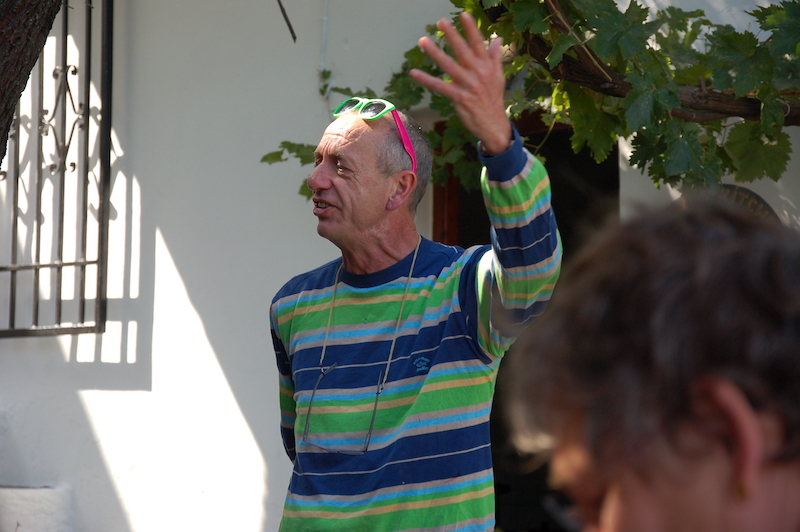
Reminiscences of my first Edinburgh Fringe
Reminiscences of my first Edinburgh Fringe (extracted, and slightly amended, from my memoir ‘My Name is Daphne Fairfax’
In late summer it is the only thing to do. For two of the past 30 years I have missed it and both times I felt like all my friends were having a terrific get-together while I had stupidly chosen to stay home and sulk. The Edinburgh Festival is one of the world’s great parties, an orgy of self-expression that encourages experimentation and welcomes the amateur performer as well as the professional. It has provided a ravishing playground for my own imagination and the things I have done in my career of which I am most proud all started, in one way or another, in this stern, dramatic, unique city in the month of August where the streets are alive with young wannabes chanting the performers mantra:
I’ll get drunk
I’ll get laid
I’ll get spotted
I’ll get paid
My adulthood has been measured out in Edinburgh Fringes and if the event did not exist I would have had a different life. Whenever, for some reason (like writing an autobiography), I wish to identify what year something happened, my first reference point is the roster of stuff that lodges in my head recording, in roughly chronological order, every show I have done in Edinburgh. Not every show you understand. Not all the one-off cabaret gigs, the guided walking tours, or the cameo appearances in odd plays, the benefits, the ‘best-of-the-fest’s, the processions, the sideshows, the radio spots, the pod casts, the press stunts, the state-of-comedy seminars, the TV programmes, the hospital charity gigs; not all of them – no, I mean the ones that inspired me to go up to the festival in the first place, the shows which I (or some sort of we) had prepared, budgeted for and advertised.
All those summers lay before me when we arrived in1977, buoyant and optimistic with our revamped version of the show we had performed at college, SwingalongaDante, subtitled, ‘…dahlings, it’s the Divine Comedy.’ We drove up from Norwich in a grubby yellow van stuffed with costumes, props, posters, programmes and hope. If we sold 25 tickets a night we would break even; if the audience numbered 50 or more we would make a small profit. That must be possible – after all, we had some great quotes from the Eastern Daily Press and the Primary School which served as our venue was famous for a wee pupil called Sean Connery. I spent 3 days failing to do as little as possible in the frenetic preparations for our opening, which first required us to convert the school hall into a theatre. The other members of the team were aware by now that I had a total lack of practical skills but I joined in grumpily sticking up posters, hustling, begging, giving out fliers, borrowing coat-hangers – all the palava of ‘let’s do a show right here in the barn.’
On the Sunday morning before our Monday night première, exhausted and, in my case, hungover, we took part in the traditional opening parade in which Adam had secured us a place. Clutching bags stuffed with costumes, we walked to the gathering point along a line of waiting lorries, until we located the spot reserved for us where it was revealed that, unlike all the other local businesses and fringe groups on the parade, we did not have a lorry and would be obliged to proceed on foot between floats at street level – the poor bloody infantry among the divisions of rolling tanks.
The float in front was occupied by members of the Cambridge Footlights Revue, who easily found room on their commodious lorry for our bags and shouted down encouragement. The Footlights had history, experience and a big oily machine behind them; they had already been on tour with their show, had a large venue, a guaranteed audience and an air of self-confidence that we, mooching around the gutter in our cheap wigs, could not match. Meeting them here, I felt a little of my dad’s humility in the presence of members of the establishment – the officer class. These young men with their pedigree and superior A-levels were probably much funnier and much cleverer than us.
Miind you they had no Babs and Max who gathered the handouts and bravely strapped themselves into their uniform of fishnet tights and high heels, while we boys pinned up our baggy leopard-skin underpants. These ‘nappies,’ worn with white shirts and unconvincing false moustaches, constituted the costume of the ‘Canaletteloni* Brothers, a frenetic bunch of acrobats – all called Luigi Cannalleteloni – whose enthusiasm, since none of us were acrobats, outstripped any genuine tumbling skills. To a furious piano accompaniment, we would run on, manically shouting in mock Italian, and commence banging each other’s heads with tin trays, leaping through hoops and performing extravagant forward-rolls. Adam would drag up a member of the audience to stand on his shoulders, while in one trick I launched myself dangerously over Adam and Phil to crash to the stage behind them. Wagons roll. We canellettoloni-ed along Princes Street to cheering crowds, convinced we would draw enough attention to sell dozens of tickets.
For our début public performance I treated myself to some clean socks. My brother and his girlfriend, with whom I was staying in Edinburgh, arrived twenty minutes early with a friend, bought a programme, and took their places, while Rick, ‘Banana Fingers,’ tinkled on the piano. Then my mate Lindsay showed up. We waited nervously in the school toilets that were now our dressing room. After half-an-hour it was apparent that no-one else was coming. Our audience numbered 4 people, all of whom we knew.
Fucking hell, what a bummer. We felt utterly dejected. What had been the point of the posters, the fliers, the parade? We had been wasting our time and I, at that point, would happily have packed my bags and gone to London – Babs, I think, may have felt the same. But Adam and the others were not going to give up so easily. I was out-voted. We would continue the run, and what’s more, we would not cancel this show. Twenty minutes later, during our opening salvo of audience participation, anyone entering the School hall would have seen the cast and the entire audience standing on stage swinging-along-a-Dante to a hundred empty seats.
* NB The number of n’s, l’s and t’ s in ‘Canneletteloni’ has never been agreed.
In the next few years our troupe became known, above all, for our enthusiasm and energy, both onstage and off. Galvanised again by Adam, the following day, and every subsequent day of the festival, we returned to the streets of Edinburgh, singing and dancing outside the Fringe box office, cajoling passers-by, button-holing journalists, and doing anything we could think of, however desperate or humiliating, that might increase our ticket sales. By the Thursday the audience at last outnumbered the cast and, on Friday, we hit double figures for the first time. Things were improving but I remained disconsolate – I estimated we were each putting in about six hours work for every 50p ticket sold – but at least performing the show was becoming less embarrassing and the few people who came seemed to be enjoying themselves. Whenever we could we did a spot at the Fringe Club on the Royal Mile, where performers gathered after their shows to compare notes, watch the cabaret, dance, get drunk and sleep with each other. Nowadays there are too many shows at the festival for there to be one central performers’ bar, which is a shame because it was a fantastic place to end your evening, equalled in bibulous exuberance only by the bar at the Gilded Balloon a decade later.
We took time off only to attend other comedies which, I noted, were all significantly shorter than our own two hours of fun. The Footlights boys were good, but no funnier than us, while the Lancaster University Revue, presenting Hayley’s Vomit were definitely worse. Chris Langham’s show was the most hilarious and featured the funniest thing I saw that year – Jim Broadbent doing his ‘jazz dancing.’ Langham cut a dashing figure with his famous girlfriend and his reputation as a TV writer. I heard with amazement how someone would ring him up and offer him £20 quid to write a joke! ‘That must be good,’ I thought.
Our audience numbers continued to grow, as did the number of pints I consumed at the Fringe Club after the show. During one performance in the school hall I was afforded a foreglimpse of the type of confrontation that awaited me on countless nights to come when a drunk persistently interrupted my Max Miller routine. I did not then have the resources to deal with hecklers but at this, my first public barracking, it did not matter because one of our new friends in the Footlights, who was sitting in front of the drunk, turned, and inviting him to ‘Shut up, you Scottish cunt!’ punched him in the face A small scuffle petered out as the lights came on and the rueful heckler left, along with 12 others, thus halving our audience. In the last week we received a good review in the Scotsman – no doubt it would have had 5 stars if reviews had been graded then. Or perhaps 4 stars since there was one caveat among the heavenly inches of praise. My cricket strip, a succès d’estime in Norwich, was declared, ‘unfunny in the extreme.’
On the final night of our run, hoorah, we sold out to a raucous crowd who laughed and clapped. Afterwards, in spirits as high as Arthur’s Seat, I capped the evening by finally copping off with a woman who, I was to discover, became a nun soon after. Edinburgh had supplied a mixture of emotions, the extreme contours of the experience fitting perfectly the geography of the city itself, but when it was all over the only thing I wanted to do was to repair to my new pad in London and lie down. I had gone to the festival thinking of it as a fun holiday which might pay for itself, a kind of full stop to my university career; I had not bargained for the sheer hard work it entailed. There were a lot of funny, ambitious people around in Edinburgh, funnier and more ambitious than I. We had worked our tits off, but nothing had come of it and I was more in debt than ever. I didn’t expect to return to Edinburgh. However, when I recounted our adventures to my mate Dave in a London pub and he asked, ‘Will you ever go on stage again?’ I could not `bring myself to say ‘no.’ And I guess the only time I ever will say no to that question will be during the endgame of my death.
Unless, of course, I play out the secret fantasynightmare of every comic, and die on stage.
Arthur Smith Sings Leonard Cohen (Vol. 2)
Edinburgh 2014
15th Aug – 24th Aug
Forth – Pleasance Courtyard
2pm – Tickets & Info
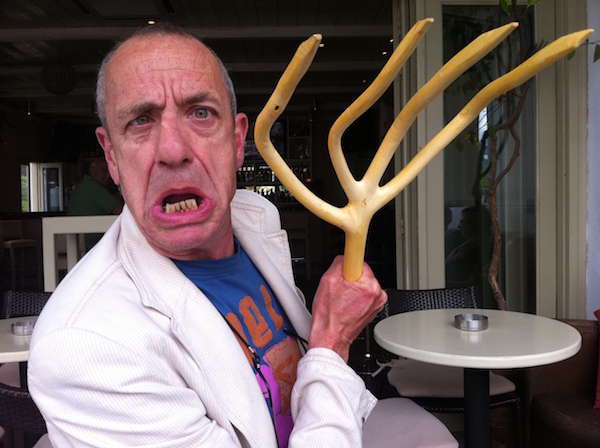
Ed Fringe 2014
Stage – Ed 2014
The street cleaners have cancelled their holidays, bekilted beardymen are defragging their bagpipes (I don’t know – how do you clean a bagpipe?), retired dames in Morningside are sharpening their pencils and the Lothian police are taking on new recruits – yes, the Edinburgh festival Fringe is back in town and it is time for my annual comedy recommendations.
To begin with – a comic who is consistently inventive. Go see Simon Munnery sings Soren Kierkegaard. Munnery is the uncrowned king of original comedy, although if we did crown him he would make an excellent show out of his abdication. Kierkegaard is better known as a philosopher than a songwriter or comic, but who can forget his lyrics?
”To dare is to lose one’s footing momentarily. Not to dare is to lose oneself.”
Or, from his second album, (On the Concept of Irony with Continual Reference to Socrates):
”Life can only be understood backwards; but it must be lived forwards.”
Next it’s ‘Old toads corner’ – interesting new shows from ancient fringe recidivists, all of whom now owe me a cranberry juice.
Kevin Day – Standy Uppy. I have seen a preview of this and witnessed an hour of deluxe stand up that is true, funny and affecting.
Ronnie Golden – New Age Pensioner. I missed his preview but his poster is brilliant, showing Ronnie as both a lithe guitarist and at ease in a Chelsea pensioners red coat. One person who has seen the show is Ronnie himself who tells me : “Golden, humour’s musclebound Adonis, utilised every arrow in his comedic quiver to great effect and left his audience……..”
Charmian Hughes, meanwhile, advertises, “Drug-crazed moon worship and ,human banana sacrifice” in Raj Rage, where she describes her adventures on a trip round India.
The Barry Experience features the ineffable Barry Ferns who, in pursuit of laughs, once changed his name to Lionel Ritchie, a fact which still disconcerts the people at passport control
2 Brilliant new acts I have noted:
Half Baked, aka Nina Smith and Libby Northedge, won one of the Funny Women Awards in 2013 and are presenting a sketch show called Twisted Loaf on the free fringe. They are, I am reliably informed (by their handout), “a supremely fearless double act,”
He nearly won the BBC new comedy award last year and left me gasping with laughter but Mark Silcox is not what his name suggests. Seek him out on a bus.
And, finally, 2 musical comedy shows:
Margaret Thatcher Queen of Soho, in which the iron lady lets her hair down and
Mighty Voice, featuring Jess Robinson – one of the UK’s top impressionists and singers – with the unbeatably fabulous Kirsty Newton on keyboards.
O yes, and Kirsty is in another show I have heard great things about – Arthur Smith sings Leonard Cohen (volume 2).
Hey, Arthur’s seat, put the kettle on man, I’m comin…….

The moment you wake
The moment you wake
Is nothing
The immense unknowable zero
Before the big bang
Of self-consciousness
Who you are
Where you are
Who you know
What you do
And then
What you have to do this day
And what for breakfast?
Swing round
Slippers on
Here we go again




